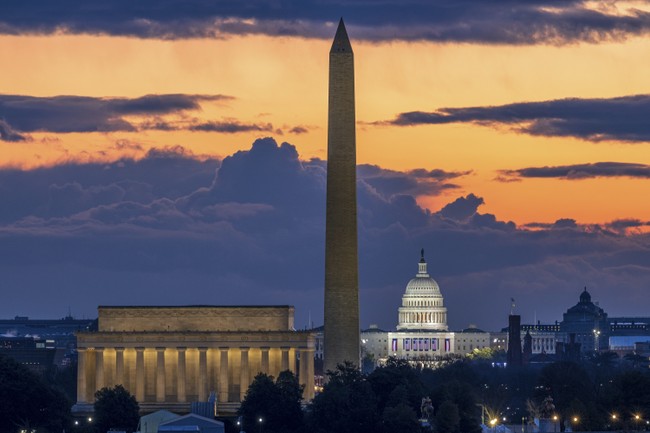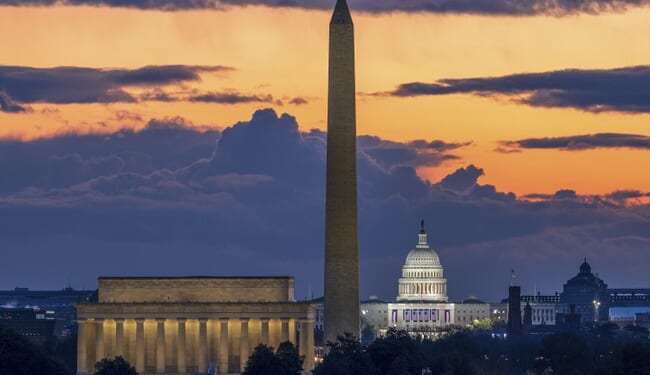
Good morning to you, and welcome. I’m glad you’re here. It’s Veterans Day; I wrote about it here.
Today in history:
In 1975, Angola declared its independence.
In 1965, Rhodesia declared its independence.
In 1918, World War I ended, which resulted in today being called Armistice Day, and later being called Veterans Day.
Birthdays today include Leo DiCaprio, Daniel Ortega, Kurt Vonnegut, Gen. George Patton, and Fyodor Dostoyevsky.
There is so much coverage involving the end of the government shutdown, including coverage of the Democrats whining like a four-year-old who has been denied a toy, that I can’t bring myself to write more about it today. I merely reiterate that the fight over funding free healthcare for illegals is far from over, and that’s really what the shutdown was about. We are going to see more about this in the week after Christmas. So, while I’ll be watching, I think I’ll hold off on commenting on that particular mess for today.
Instead, let’s talk about the first civil war, here in America. I’ll do this for the purpose of reinforcing definitions. Welcome, dear reader, to “words mean things.” These are definitions we will need to understand events in the near future.
I dare to suggest that in the end, the Civil War was not about slavery, but about the Constitution, which stated (at least when it was written) that each state would be free and to a considerable degree, independent, versus a powerful federal government that the founders never wanted and went long to prevent such from happening.
Now, before you start warming up, let me get my boundaries established. I do not propose to defend slavery; that’s not the point here, and I would not do so. The fact was and remains, however, that the war was against a strong and overbearing federal government, as was the Constitution itself, until the end of the war. That freedom is something the strong federal government, in the end, couldn’t stand for.
It’s true enough that by the time things really got going, the stated focus had shifted, and we were supposedly fighting a war about ending slavery. The thing is, though, that didn’t come about; that wasn’t the reason for the war until well after the war began.
Remember, gang, in Lincoln’s first inaugural, he said flatly he had no intention of abolishing slavery, or of repealing the Fugitive slave law (even though he disagreed with both): “I have no purpose, directly or indirectly, to interfere with the institution of slavery in the States where it exists. I believe I have no lawful right to do so, and I have no inclination to do so.”
Lincoln himself stated early on that the war was not about slavery or about the rights of black people but about the preservation of “the union”. Lincoln even went so far as to bar Blacks from serving in the Military. It was only well after the war was underway that Lincoln pulled an about-face, and suddenly the war was about slavery. Ending slavery was a more tangible goal than ‘saving the union’, particularly given that most people didn’t understand what the union was, except in the loosest of senses. Ending slavery served as a far easier-to-support rally cry than the real purpose, which was to retain the vast resources of the South under the control of Washington, DC.
Nor did Lincoln save the Union. What most people do not understand (mostly because they’re not taught this by government schools) is that the union ceased to BE a union as of the Civil War. America was saved, but only in the geographic sense. As of the Civil War, America wasn’t a union of states anymore, but a very powerful federal government and states with very diminished autonomy. That’s something the founders never intended and went long to prevent.
Moreover, the South didn’t start a rebellion. The South certainly posed no military threat to the North. Nor did they show any intention of any invasions of the north prior to the need to prosecute the war effort. They simply chose to remove themselves from the union.
So the question, then, is: Was it worth all the people who died? Yes, we ended slavery, but historians tell us that it was an institution that would have died shortly, in any event, even absent all the carnage. Was ending it ten years earlier, I ask you, worth killing so many men, women, and kids, and creating the behemoth federal government, thus destroying the union we had thought to save? I suppose the answer to those questions depends on where you stand about holding the Constitutional line, or holding one that leaves the Supreme Federal Government the founders never envisioned.
In my own view, the Civil War should have been called the war for Southern independence. Then again, the victors usually get to re-label things, don’t they?
Here it is: The Civil War was fought to put down an insurrection mounted against a powerful central government.
Granted, that insurrection was started by people supporting slavery, but the federal government did not react with military action until the power of the federal government itself was threatened.
That understanding is the key to this discussion, because it is a vital clue as to how the government will react in modern times to any threat, internal or external, including where non-lethal forces are used.
Like, for example, reacting to the people electing somebody from outside the establishment of both parties, and who is actually desirous of holding to the Founder’s vision of a LIMITED federal government, and protection of the nation’s sovereignty.
Here’s why I focus on this today: Now that the distraction of the federal government shutdown is at least on hold for the moment, you may want to keep this in mind as more evidence piles up due to the resuming congressional investigations, exposing the government’s actions against Donald Trump and his supporters. The lawfare, the criminal activity of the DOJ, and of some in both houses of Congress, the vote stealing, the multiple impeachments, the illegal raids, all fall directly in line with protecting the power of the federal government against those who would limit that power.
There will be a lot of quite frantic activity from certain quarters, trying to keep a lid on the progress of such investigations. Some might even call all of these the actions of a “Deep State.”
With these definitions in hand, you’ll recognize those efforts when they come.
After more than 40 days of screwing Americans, a few Dems have finally caved. The Schumer Shutdown was never about principle—just inflicting pain for political points. Help us continue to report the truth about the Schumer Shutdown. Use promo code POTUS47 to get 74% off your VIP membership.











